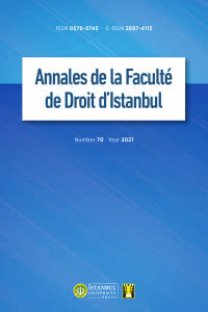Konişmentolara Atıf Yolu ile Dahil Edilen Tahkim Klozlarının Neden Olduğu Üç Sorun
Uluslararası ticarette malların deniz yolu ile taşınmasında standart çarter parti formları ve konişmentolar kullanılmaktadır. Konişmentolarda tahkim klozu da dahil olmak üzere çarter partide yer alan hüküm ve şartlara atıf yapılması da yaygındır. Çartererin konişmentoyu cirolayarak çarter partinin tarafı olmayan bir üçüncü kişiye devretmesi mümkündür. Bu durumda, deniz yolu ile yük taşınması esnasında bir ihtilaf doğar ise hakemlerin bu uyuşmazlığı çözmeye yetkili olup olmadığı meselesinin çözümlenmesi gerekmektedir. Bu çalışmada, atıf halinde tahkim klozunun varlığı ve geçerliliğine uygulanacak hukukun nasıl belirleneceği; üçüncü kişilerin konişmentoda atıfta bulunulan çarter partide yer alan tahkim klozu ile bağlı olup olmayacağı ve tahkim klozunun atıf yapılan diğer çarter parti hükümlerinden farklı olarak incelenip incelenemeyeceği ve tahkim klozunun diğer hükümlerden farklı olarak ele alınıp incelenmesinin nedeninin ne olabileceğine ilişkin üç sorun ele alınıp incelenecek ve cevaplanacaktır.
Three Problems Caused by Arbitration Clauses Incorporated into Bills of Lading
Standard charter party forms and bills of lading are used for the carriage of goods by sea in the international trade. It is also common to refer in the bills of ladings to the charter party terms and conditions including, inter alia, arbitration clauses. The charterer may endorse the bill of lading and transfer it to a third party who is not party to the charter party. In that case, if a dispute arises in the course of the voyage the issue of whether or not arbitrators have the authority to rule on the dispute should be resolved. In this paper, three issues, how to determine the applicable law to the validity and existence of the arbitration clause in case of an incorporation; as to whether third parties bound by the arbitration clause incorporated into a bill of lading and whether or not arbitration clauses should be treated differently and what could be the reason for the different treatment, will be examined and addressed.
___
Three Problems Caused by Arbitration Clauses Incorporated into Bills of Lading
